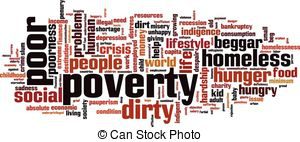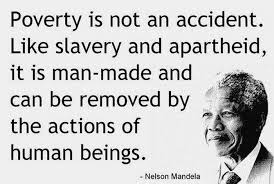Poverty is a subject that many talk about but few understand. The subject is near and dear to my heart because I’ve experienced it. I work with people who are seeking to overcome it as well – a difficult task for sure. The biggest misconception I see is that people who have not experienced poverty firsthand often assume that just getting a job will fix it.

Types of Poverty
In reality, people are poor due to both internal and external factors. Some of the conditions they experience are far outside their control. Some are born into it; this is called generational poverty. Those in generational poverty don’t have the example of elders who understand the hidden rules of the middle class to help them see a way above. They often live in low-income neighborhoods that provide only examples of survival, not growth.
Others are experiencing a temporary setback – situational poverty. The Federal Reserve recently reported that more than 40% of Americans couldn’t come up with $400 in an emergency. Considering this, I’d say that almost half of us may be one bad situation away from experiencing a serious financial hardship. At least those in situational poverty have some experience with higher level resources that can help them overcome. They may have a comfort level with higher education, banking situations, and employer expectations that those in generational poverty lack.
Methods of Moving Out of Poverty
While many programs exist to help those with low or no income with either a hand out or a hand up, it isn’t enough. The problem with being poor is: its exhausting. Dealing with the every day struggles of surviving doesn’t leave any time to reflect, plan or learn. If the community around those experiencing a financial hardship cannot provide a pathway out, the issue will never be resolved.
I saw a recent TED Talk that presented a novel idea for overcoming poverty. Also, a university professor in New York recently proposed a Baby Bond idea, similar to the concept proposed in the TED Talk. Both ideas have merit and address the problem of poverty from a different angle than traditional methods. The US announced a War on Poverty back in 1964. Fifty years later there were at least 92 different federal programs aimed at helping low income Americans, costing an annual $799 billion in tax dollars to operate. Perhaps if we used those annual funds to enact one of the two ideas introduced above, we could have won this war already.
Take a moment to consider how you perceive poverty in your community. What assistance for the poor is available where you live? Do you think more services are necessary for indigent people in your area? Feel free to comment about your perception of poverty. How has the war on poverty has impacted your way of life.

 0
0
